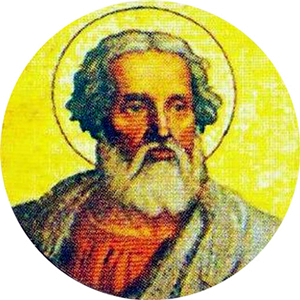Today the Church venerates Sts. Caius and Soter, popes in the early Church, as martyrs, although no reliable account of their martyrdom has survived today.
St. Soter was born in Fundi, Italy. Although we don’t know when he was born, he is recorded as pope of the Church for eight years, from 166 until his death in 174.
As pope, Soter was known for his remarkable generosity. His personal charity and love for his flock can be seen in a letter written to him by Bishop St. Dionysius of Corinth, quoted in the 4th century “Ecclesiastical History of Eusebius:” “This has been your custom from the beginning, to do good in manifold ways to all Christians, and to send contributions to the many churches in every city… Your blessed bishop Soter has not only carried on the habit but has even increased it, by administering the bounty distributed to the saints and by exhorting with his blessed words the brethren who come to Rome, as a loving father would his children.”
In the same letter, Dionysius chronicles that Pope Soter had written a letter to the Corinthians, which was read alongside the epistle of St. Clement and held in high regard.
Pope Soter fiercely opposed the Montanism heresy, a sect which believed a Christian who had gravely sinned could never be redeemed.

St. Caius was pope for 13 years, from 283 until his death in 296, just before the Diocletian persecution. He was related to the Emperor Diocletian.
Early in his papacy, Caius decreed that a man must be ordained as a priest before he could be elevated as a bishop. He is said to have been driven into hiding in the catacombs for eight years, where he died.
Both St. Soter and St. Caius are buried in the cemetery of St. Calixtus, and are remembered on the date of St. Caius’ death.

